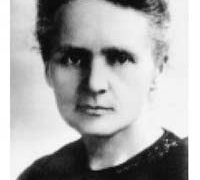 The ISO organization has officially recognized the OpenDocument Format (ODF), an XML-based programming interface that competes directly with the proprietary Microsoft Office productivity suite, as an official document standard.
The ISO organization has officially recognized the OpenDocument Format (ODF), an XML-based programming interface that competes directly with the proprietary Microsoft Office productivity suite, as an official document standard.
ODF is currently used in the StarOffice product suite and the open-source OpenOffice version from Sun Microsystems. Microsoft has attempted to counter ODF with OfficeXML, a free document format developed on XML.
The ODF Alliance, formed nearly two months ago and consisting of 150 members, has continuously called for accelerating the approval process for ISO certification. For over a decade, Microsoft Office has served as the unofficial standard for office documents such as text files and spreadsheets. However, proponents of ODF argue that common documents should be built using a neutral format, allowing users to access data without the need to purchase proprietary software.
“The new ISO decision will help governments resolve any ambiguities and find the best way to maintain, access, and control documents in the future,” asserted Marino Marcich, Executive Director of the ODF Alliance. He stated that he would continue to advocate for government agencies to recognize ODF as the official standard on desktops.
However, analysts believe that the victory of ODF will have a significant impact primarily in developing countries. In the developed world, the competition for government support is not a major event, as this is only a very small segment. ISO certification does not guarantee that enterprise users will immediately abandon Microsoft Office.
Moreover, despite its proprietary nature, Microsoft has actually made it easier for businesses to operate. Anyone who experienced the early years of desktop computing can recall how different companies used various word processing and spreadsheet software. As a result, data from that era could only be exchanged after being printed on paper.
Tom Rabon, Vice President of Red Hat, a co-founder of the ODF Alliance, believes that the ISO organization’s movement will help expand Linux on desktops. “The new certification does not mean we will immediately experience significant growth, but it will help us move in the right direction.”
P.T.


















































